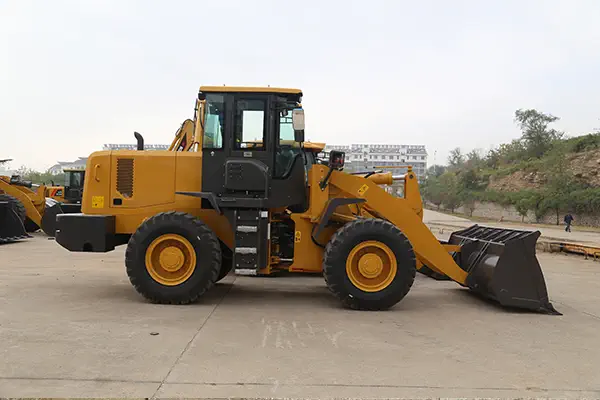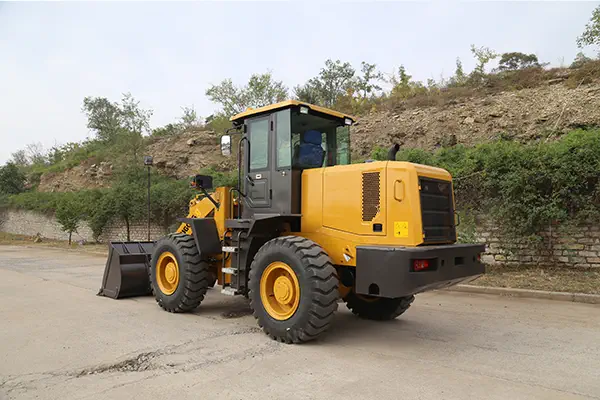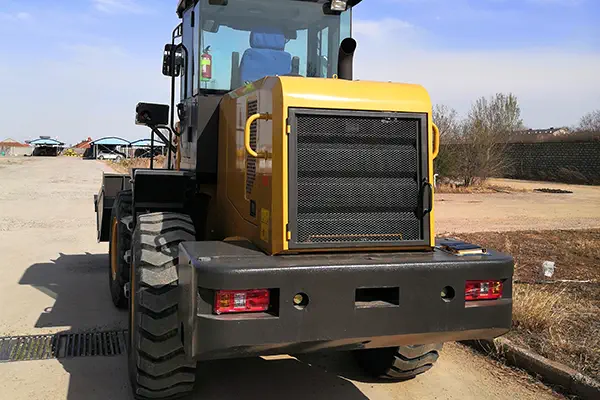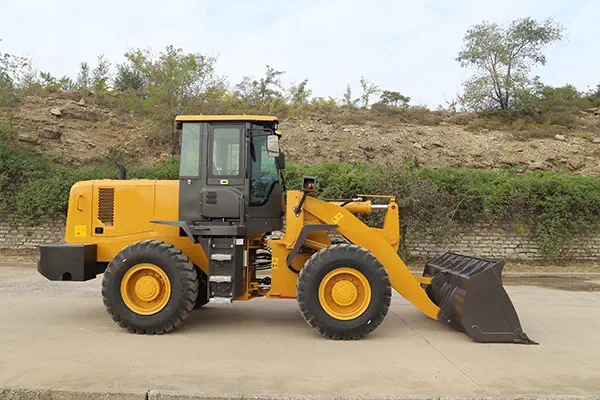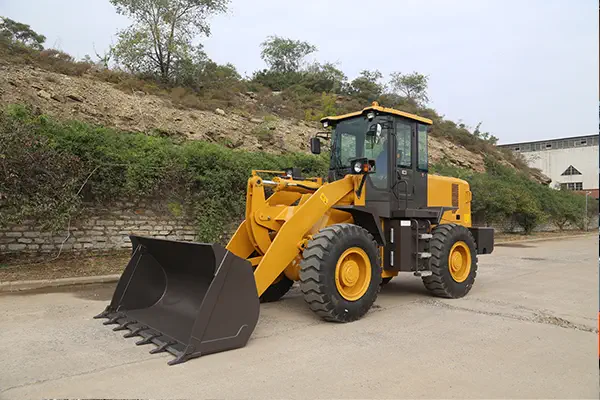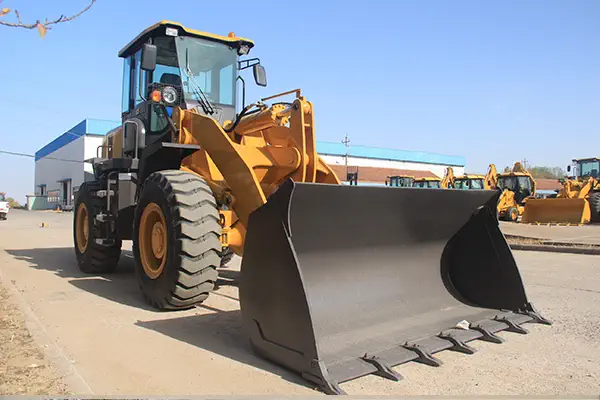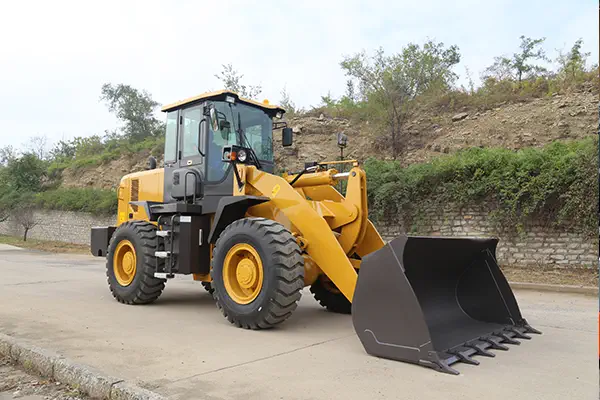
Wheel loader
We provide various types of Wheel loaders. If you need customization, please feel free to contact us.
Know More About Wheel loader
A wheel loader, often simply referred to as a “loader,” is a type of heavy construction equipment used for a variety of material handling and loading tasks. It is characterized by its large front-mounted bucket and four large wheels, which make it highly maneuverable and suitable for a wide range of applications. Here are some of wheel loader’s features
- Quick Couplers: Many wheel loaders come with quick coupler systems that allow for the fast and efficient changing of attachments. This enhances the loader's versatility, as operators can easily switch between buckets, forks, grapples, and other tools to suit different tasks.
- Hydraulic Systems: Wheel loaders rely on powerful hydraulic systems for the operation of the bucket, arms, and other attachments. These systems are designed for precision control and efficient power distribution.
- Variable Transmission: Some wheel loaders are equipped with variable transmission systems that provide different speed settings to optimize performance for various tasks, including fast travel and heavy lifting
- Ride Control: Ride control systems are available on many models and help to reduce operator fatigue by stabilizing the loader and improving ride comfort. This feature is particularly useful when traveling at higher speeds on uneven terrain.
- Joystick Controls: Modern wheel loaders often feature joystick controls, which are more ergonomic and user-friendly than traditional levers. These controls provide precise movement and reduce operator fatigue.
- Load-Sensing Hydraulics: Load-sensing hydraulic systems adjust the flow of hydraulic fluid to match the load, which enhances efficiency and minimizes unnecessary energy consumption.
- Differential Lock: Differential lock functionality helps to improve traction, especially in challenging terrains or when one wheel loses grip.
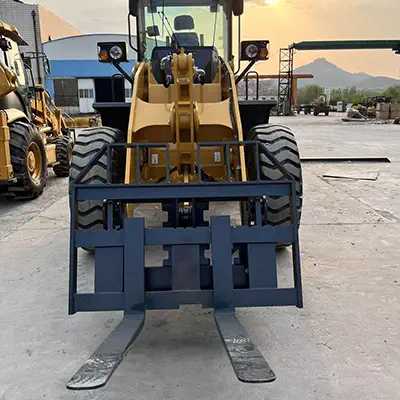
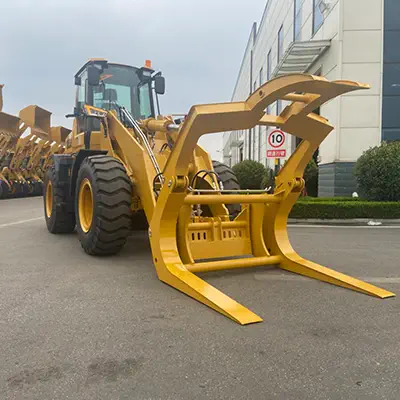
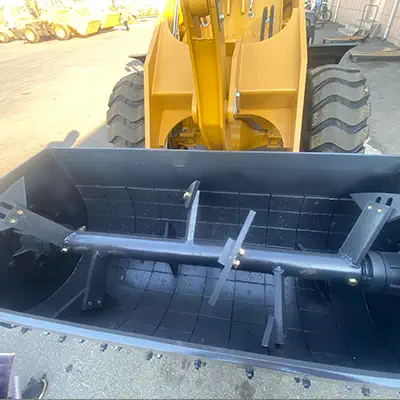
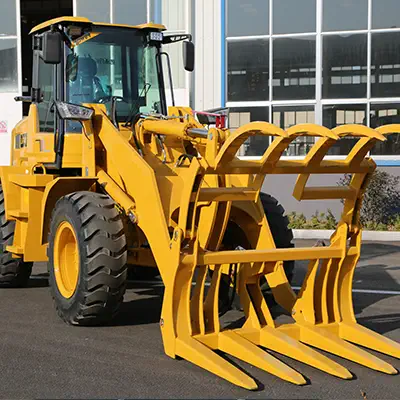
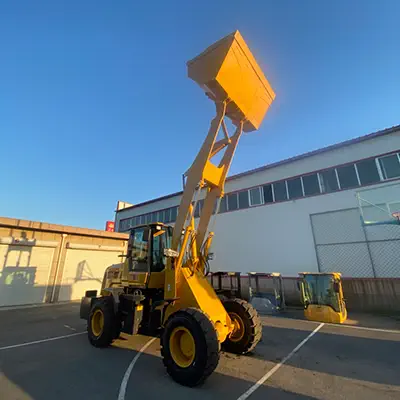
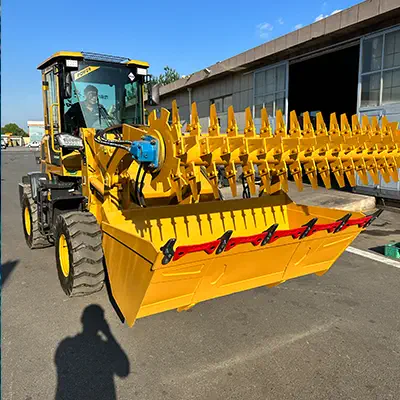
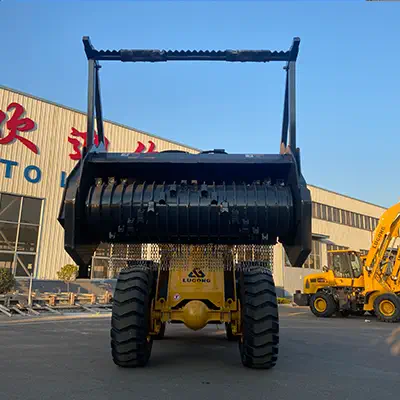
Technical specs comparison of Wheel loader
| Specification | Unit | E188 | L920 | L936 | L938 | L930 | LG938 | LG946 | LG3000 | LG5000 |
| Rated load | kg | 600 | 1200 | 1800 | 2000 | 1600 | 2000 | 2800 | 3000 | 5000 |
| Bucket capacity | m³ | 0.3 | 0.6 | 1 | 1 | 0.8 | 1 | 1.5 | 1.8 | 3 |
| Machine weight | kg | 2000 | 3000 | 4500 | 5200 | 3800 | 5200 | 7300 | 10000 | 16500 |
| Dumping height | m | 2.6 | 2.9 | 3.6 | 3.6 | 3.2 | 3.6 | 3.8 | 3.1 | 3.2 |
| Tire | / | 10/75-15.3 | 20.5-16 | 16/70-20 | 16/70-20 | 20.5-16 | 16/70-20 | 17.5-25 | 17.5-25 | 23.5-25 |
| Engine | / | Yunnei | Weichai Huafeng | Yuchai | Deutz | Weichai | ||||
| Engine power | kw | 18.7 | 42 | 65 | 76 | 65 | 76 | 92 | 92 | 162 |
Wheel loader application area
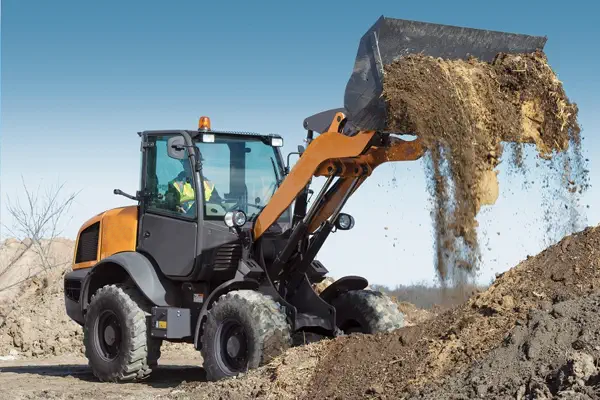
Construction Sites
- Loading and moving construction materials, such as dirt, gravel, sand, and concrete.
- Clearing debris and excavated material.
- Leveling and grading surfaces.
- Handling heavy equipment and machinery.
Agriculture
- Loading and transporting agricultural materials, including feed, hay, and grains.
- Clearing fields and managing crops.
- Handling and moving manure.
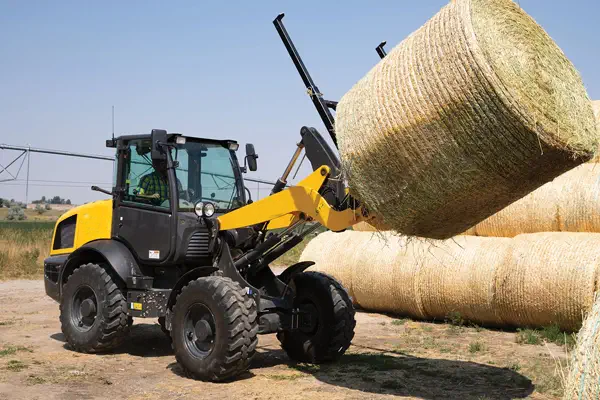
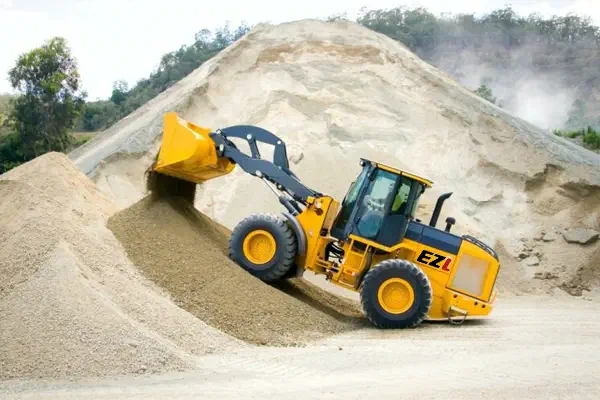
Quarrying and Mining
- Loading and transporting large quantities of rocks, ore, and other mined materials.
- Clearing overburden.
- Working in harsh and rugged terrains.
Logging and Forestry
- Handling and moving logs.
- Loading and transporting cut timber.
- Preparing and maintaining forest roads.
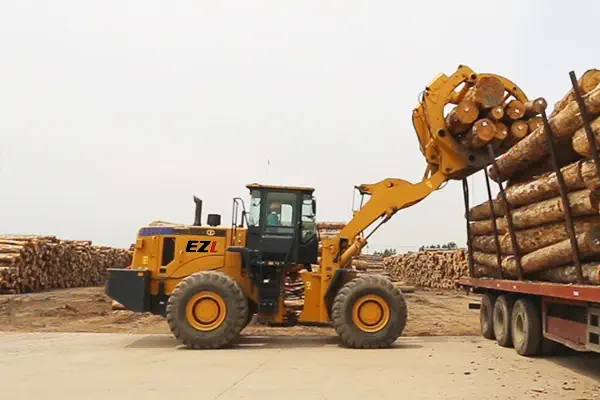
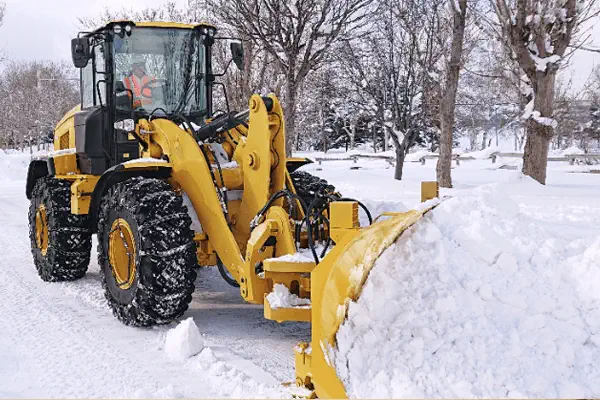
Municipal and Public Works
- Assisting in road construction and maintenance projects.
- Clearing roads after natural disasters or heavy snowfall.
- Handling and moving materials for city projects.
Wheel loader Loader Purchase Guide
When considering the purchase of a wheel loader, it’s important to make an informed decision based on your specific needs and budget. Here is a purchase guide with key factors to consider:
- Define Your Requirements: Determine the tasks you'll be using the wheel loader for and the specific materials you'll handle. This will help you decide on factors like load capacity, bucket size, and reach.
- Size and Capacity: Choose a wheel loader with an appropriate size and load capacity to match your work requirements. Consider both the weight and volume of materials you need to handle.
- Fuel Type: Decide on the fuel type for the wheel loader. Diesel engines are common due to their power and torque, but electric and hybrid models are available for reduced emissions and operating costs.
- Attachments: Consider the availability and compatibility of attachments you may need, such as forks, grapples, or specialty buckets.
- Tire Type: Select the appropriate tire type based on the terrain and environment where you'll be operating. Options include standard, rock, and foam-filled tires.
- Brand and Model: Research reputable brands and models known for durability, performance, and dealer support. Read user reviews and consult with industry experts.
- New vs. Used: Decide whether to buy a new or used wheel loader. New machines offer the latest features, while used equipment can be more budget-friendly. Ensure a used loader has been properly maintained.
- Budget: Establish a budget that includes the cost of the machine, attachments, and any necessary modifications or upgrades.
- Operating Costs: Consider long-term operating costs, such as fuel consumption, maintenance, and potential repairs. Newer models may be more fuel-efficient and have lower maintenance requirements.
- Telematics and Technology: Explore wheel loaders with telematics systems that provide data on machine performance and maintenance needs. Advanced technology features can improve efficiency and safety.
- Environmental Compliance: If environmental regulations are a concern, choose a wheel loader that meets emission standards, such as Tier 4, and offers features for reduced environmental impact.
- Safety Features: Ensure the machine is equipped with safety features like ROPS (Roll-Over Protective Structure) and FOPS (Falling Object Protective Structure) to protect the operator.
- Warranty and Service Support: Inquire about the manufacturer's warranty and the availability of local service and support. A good warranty can provide peace of mind.
- Resale Value: Consider the potential resale value of the wheel loader, as well-maintained equipment from reputable brands tends to retain value better.
If you have questions when purchasing a Wheel loader or would like to learn more about the performance of our Wheel loader equipment,
please click the button below to contact us.
FAQ About Wheel loader
Wheel loaders come in various sizes, with load capacities ranging from a few tons to over 20 tons, depending on the model.
Wheel loaders have a larger size, capacity, and a front-mounted bucket, while skid steer loaders are smaller and have a compact, versatile design.
Choosing the right size depends on your specific tasks and load requirements. Consider the material type, volume, and working conditions.
Attachments include forks, buckets, grapples, snowplows, and more, which extend the versatility of a wheel loader.
Different tire types, such as standard, rock, and foam-filled tires, are chosen based on the terrain and environment where the wheel loader operates.
Regular maintenance includes engine checks, hydraulic system inspections, tire care, and other routine service tasks. Consult the manufacturer’s guidelines.
Safety features include ROPS (Roll-Over Protective Structure), FOPS (Falling Object Protective Structure), and features for operator visibility.
Emissions regulations vary by location, but many modern wheel loaders are designed to meet Tier 4 emissions standards.
Have Anything To Ask Us?
Please fill in your email in the form and we’ll get back to assist you soon!
- Will contact you within 1 hour.
- Don't worry, we hate spam too!
